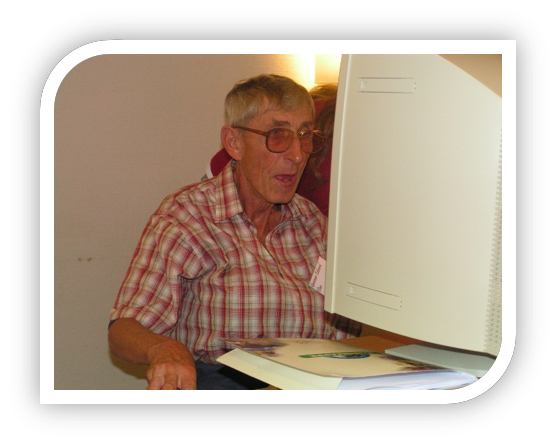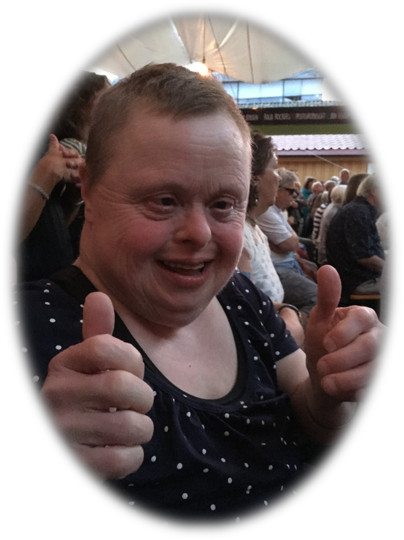Ageing
2. Ageing process
2.6. The importance of good support - a preventive perspective
Throughout the world, there are studies revealing a growing ‘healthy’ cohort of people, mostly with mild ID, surviving to (biological) old age i.e over 70's (2). When people with ID are educated appropriately, they are more able to take care of themselves and may have more healthy and successful ageing. They need to learn productive coping and develop compensatory mechanisms during adulthood and maintain control over their life activities.

Photo: Lars Ole Bolneset
Prevention to improve the health and reduce the disability of older adults with ID, is important. Preventive health care for people with ID has received increased attention in the last 10 years, as evidenced by several international publications (2). A perspective on health objectives helps to ensure a systematic approach to some major issues involved.
Primary prevention is directed at reducing the occurence of new cases of defined health disorder by altering the risk factors. It implies strategies such as good nutrition, exercise programmes, healthy lifestyles, health promotion and education (2).
Secondary prevention involves efforts to reduce the prevalence of a defined health disorder by reducing its duration, by early detection and prompt treatment. Health mapping and proactive primary care are important. In this case people with ID are often given a passive and non-informed role, which should be avoided (2).
Tertiary prevention means to reduce the severity and disability associated with a particular disorder. The access of adults with ID to health services, adequate training of health professionals and others, their attitudes, and the quality and effectiveness of specialized services, are important for health outcomes (2).
It is important to provide support for a good friendship network and a self-governed life by social interaction, self-determination and freedom of choice. It is important to act quickly on morbidity when it occurs, promote health while taking into account health problems that accompany different disabilities and build good routines for health mapping and health care.
The most important thing is to have good knowledge of the person, mapping individual wishes and needs and have a good overview that you detect cognitive decline, physical weakness, poor appetite and less ability to take care of themselves early. By that, you may prevent serious changes to occur. Build good routines of health screening and health care, physical and psychically. Keep focusing on positive situations, relationships, happiness and personal development.

Photo: Britt-Evy Westergård
You can read more about about ageing in literature referred to in this module and at IASSIDD’s webpage: https://www.iassidd.org/content/aging-and-intellectual-disability-documents-and-publications
ACTIVITIES:
- Look at the model of prevention and ask what kind of prevention you can support your child/sibling/client with to improve their health and reduce disability in older age?
- Think of three things you think are the most important prevention strategies and ask your child/sibling/client what they think about it?